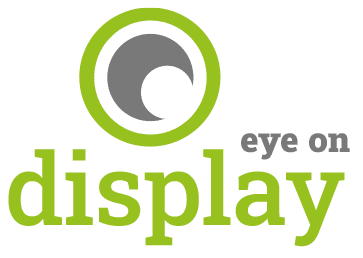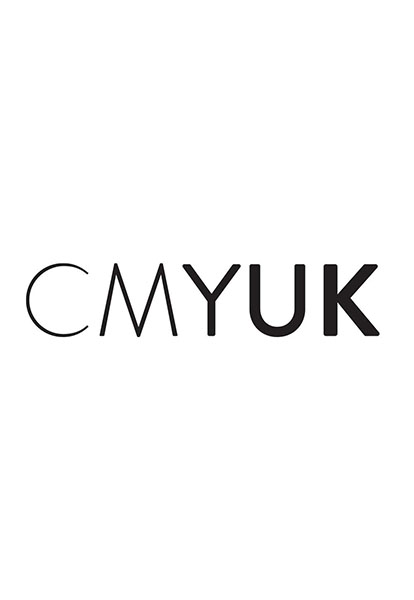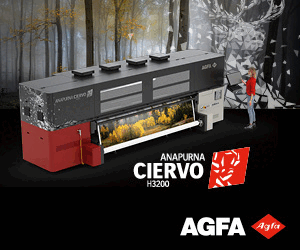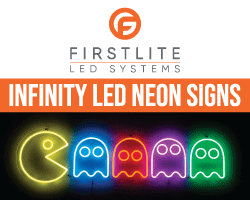Barbieri upgrade is specifically for profiling digitally printed textiles.
It provides an improved colour accuracy due to new and innovative features
 CMYUK has upgraded to the new Spectro LFP qb Textile edition automated reflection and transmission spectrophotometer from Barbieri. Designed specifically for the automatic colour measurement of digitally printed textiles, this device shares the same technology root as the original Barbieri Spectrophotometer but with new dedicated software and accessories.
CMYUK has upgraded to the new Spectro LFP qb Textile edition automated reflection and transmission spectrophotometer from Barbieri. Designed specifically for the automatic colour measurement of digitally printed textiles, this device shares the same technology root as the original Barbieri Spectrophotometer but with new dedicated software and accessories.
CMYUK is a long-term user of Barbieri’s pre-eminent colour technology. Rob Cawston, Digital Colour Management Consultant at CMYUK for over 15 years says, “Barbieri is the best that there is. The build quality is superb, we’ve had 2 of these since 2008 and the original device is still working. These machines are absolutely bulletproof; they do the job really well, nothing matches them.”
The need for accurate custom profiles
Most super-wide printers supplied by CMYUK are calibrated and profiled on installation – overriding the manufacturers’ Generic Media Profiles. Using Barbieri technology, these profiles ensure a neutral grey balance rather than monochrome imagery that has a coloured cast. When the Grey Balance is correct, more accurate colours normally follow. Pantone spot colours will be more accurate, and the colour gamut is maximised for natural flesh tones. Customised profiles also use less ink and output appears smoother.
CMYUK was a very early proponent of colour profiling for its super-wide printers. “Back in 2008, if you didn’t calibrate and profile the printer when it was installed, the colour results were quite frankly, disappointing. Every time CMYUK implemented a printer, we would calibrate profiles on-site to ensure accurate colour results. A correctly calibrated and profiled printer ensures that the colour output matches what the originator or brand specified every time, saving production significant time and money,” says Rob.
Transmissive operation
From the get-go, the Barbieri spectrometer was the device of choice at CMYUK as the first profile Rob created was for a backlit application. Barbieri sits above the competition because it’s the only colour management device in the world that is able to produce both automatic reflective and transmissive profiling, the latter of which is essential for backlit applications.
Historically, one of the inherent issues of profiling textiles with the original Barbieri device was the build-up of ink and fibres around the measurement head, leading to inaccurate readings. “This happened to me in the past. I could tell something was wrong but didn’t know what. It turned out to be a build-up of ink inside the measurement head that changed the density of the profile, so it wasn’t dark enough. Once call to Barbieri support and they advised me to clean the measurement head with pumped air and the problem went away. The Spectro LFP qb Textile edition aces this concern thanks to the innovative integrated Air Blowing System. This prevents textile fibres and dust from contaminating measurements by blowing artifacts away from the optics. Only Barbieri would go to so much trouble,” says Rob.
Other new features supporting improved colour accuracy includes a special textile holder for easy and secure fixation of printed textile for measurement. “Fixing textiles on a sample holder can be quite tricky but the new sample holder uses an electrostatic charge to hold the textile flat on a white surface. A frame is also applied to provide additional layflat support. If you’re working with heavy thick materials, there are additional sample holders available specifically designed to cope with those, so there’s absolutely no compromise in accurate measurement,” he says.
The new Textile edition can also recognise distortions on any patches that may have stretched or shrunk, which in the past would have affected the measurement. Now, thanks to a new integrated sensing unit, it detects the centre of each patch, and any anomalies can be measured automatically with smart algorithms calculating compensation values.
“Textiles are measured in a highly accurate and repeatable way because of the large 8mm aperture in the camera within the sensing unit. There is also a spectral unit for spot colour reproduction and comparisons, as well as the measurement of fluorescent inks. This upgrade is designed to be as accurate as possible avoiding any errors of mismeasurements,” says Rob.
UFabrik profiling for EFI VUTEk
The new upgrade has been used in the first instance to profile the UFabrik range of textile materials for selected EFI VUTEk UV LED and dye sublimation printers. This was carried at CMYUK’s Shrewsbury-based training and demonstration centre by Rob, alongside CMYUK Academy Manager, Amira Bouchiba, and CMYUK Textiles Business Manager, Brett Platt.
The UFabrik range is designed for multiple market applications such as backlit, frontlit, blockout, backdrops, wall wraps, banners, flags, canopies, tents, gazebos and more. It includes proven eco-responsible textiles constructed from recycled post-consumer waste reflecting the demand for environmentally responsible, high performing, well-priced materials from global brands that have a requirement to meet sustainability goals.
Says Rob, “It’s been a really interesting exercise to utilise the new Barbieri upgrade. It’s a very clever piece of equipment that addresses the unique practicalities of profiling textiles. The Air Blowing System works very well, keeping optics free of contamination, while the ability to identify any distortion and compensate for it is also very impressive. We’ve been using it to profile the UFabrik range for a variety of EFI printers, and I must say that results are the best I have ever seen. It’s been an easy profile instruction; these materials just work, and I can already see how this spectrophotometer is going to elevate future textile profiling.”



















